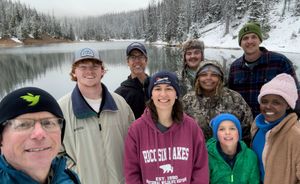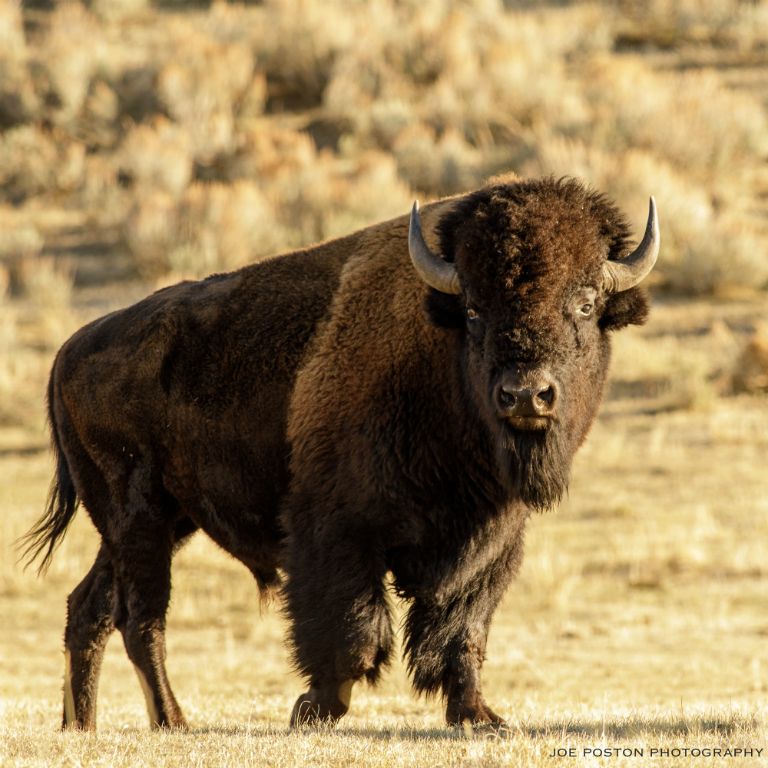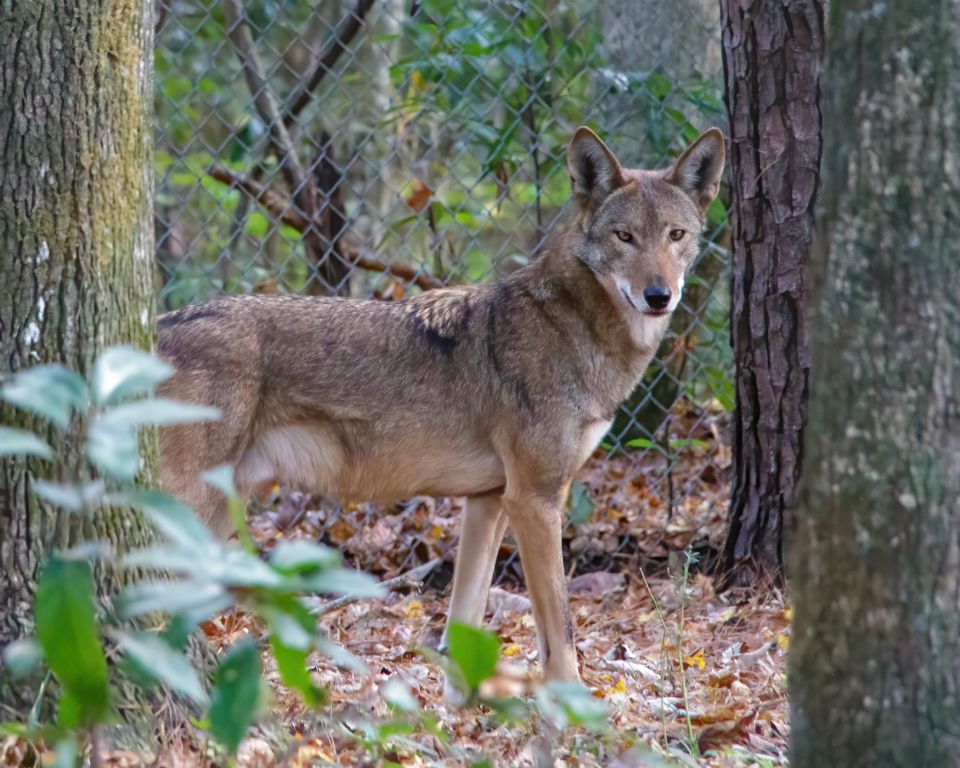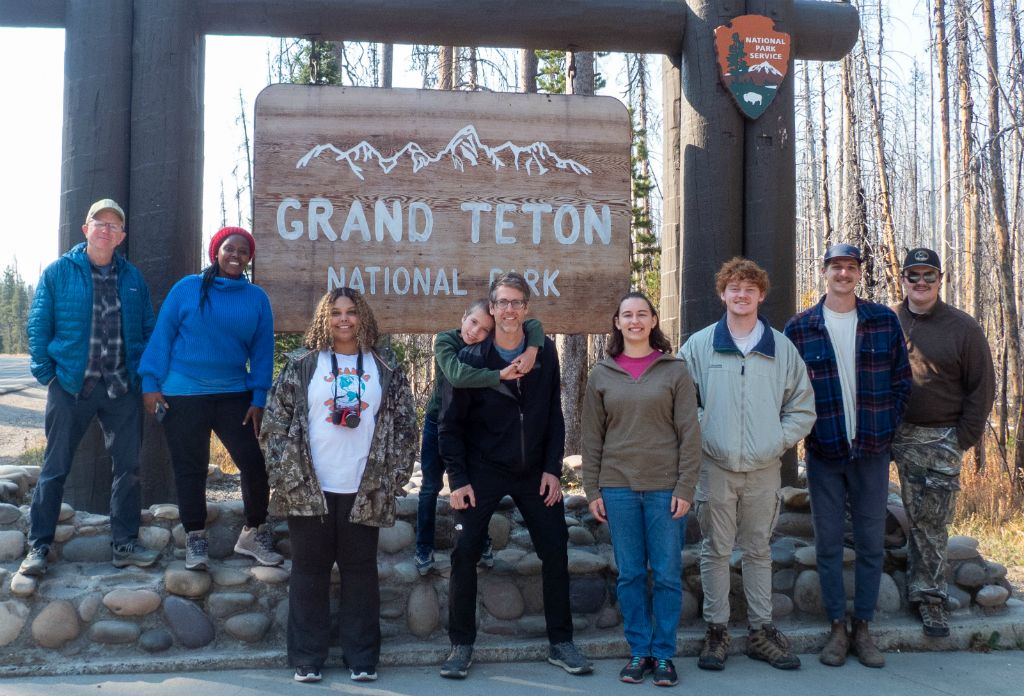
Six students from the Conservation Biology class traveled to Wyoming where they visited Grand Tetons National Park, Yellowstone National Park, the Draper Museum of Natural History, and Wind River Indian Reservation, among other destinations. These students learned about conservation of wildlife in the Greater Yellowstone Ecosystem by meeting with foresters, museum scientists, and federal, state, and indigenous biologists.
Students who participated in the Wyoming trip were Salem Fleming, Carter Mayhew, Nadine Niyitegeka, Ethan Stanford, Sam Taylor, and Caleb Townsend. Faculty who led the trip were Dr. Andrew Jacobson and Dr. Joe Poston.

A centerpiece of the trip was visiting iconic Yellowstone National Park, the first national park in the world. The park includes unique geologic features as well as habitat for large animals. Salem Fleming was struck by the variety of wildlife, “The trip to Yellowstone and the surrounding area was incredible. We saw wildlife most of us had never seen before from pronghorn and bison, to grizzly bears and wolves.”
Students and faculty participated in a unique opportunity to improve habitat for wildlife when they collaborated with the Absaroka Fence Initiative to remove old, unused barbed wire fencing from the Shoshone National Forest. Nadine Niyitegeka commented “I was able to participate in a fence removal project which does help with migration, avoid disease spread as well as allowing animals to have access to resources such as food.” Some of the fences the group removed had been unused for decades. Students and faculty were pleased to restore the sagebrush habitat to a more natural condition.
Another dimension of the trip was to help students learn about career trajectories for professionals who work in conservation. This part of the trip was modeled after similar experiences Dr. Andrew Jacobson had as a student. “As I finished up my graduate program, I loved taking a trip out west and learning about various careers, but it was too late for me to really act on what I learned. I set out to create a similar opportunity but one in which students at an earlier stage in their academic and life journey could participate in.” Students appreciated the opportunity to receive career advice from professionals, as summed up by Sam Taylor, “Getting to meet all of the different career paths that we did, definitely has given me options to think about in the future.”

In a separate trip, nine students from the Vertebrate Ecology class visited Alligator River National Wildlife Refuge in Dare County NC, where they learned firsthand about conservation of red wolves in the wild. Red wolves are one of the rarest carnivores on earth, with fewer than 20 individual wolves in the wild and about 300 wolves in captive breeding programs in zoos. Students who made the journey to eastern North Carolina were Daityn Bost, Evelyn Espinoza, Natalie Perez, Larkin Garden, Christina Knotts, Junior Price, Luke Roberts, Caleb Townsend, and Lilly Wolf. They were led by their professor, Dr. Joe Poston.
On this trip, students met with the director of the Red Wolf Coalition and with the lead biologist on the red wolf project. Luke Roberts was impressed by the dedication of the people working to conserve red wolves, “One part of the trip that really stuck with me was how the red wolves can be sustained by just a small, passionate group of people.” And Junior Price appreciated the ‘behind the scenes’ aspect of the meetings, “I really enjoyed being able to talk with the Head Biologist for the Red Wolf Recovery team because he gave insights to what the future could look like for the program.”
Students explored the refuge, where they observed a variety of wildlife such as bears, waterfowl, and hawks. Natalie Perez enjoyed her first ever visit to a wildlife refuge, “I appreciated how tranquil and peacefully beautiful the refuge was. It was amazing to see the great abundance of wildlife in the refuge.” For everyone on the trip, a highlight was a sighting of two red wolves as they were resting in a field. Larkin Garden appreciated the opportunity to observe the wolves, “Getting to observe Red Wolves in the wild, one of the rarest carnivores in the world, proves why nothing can compare to Catawba field trips.” Dr. Joe Poston was similarly excited, “After several years of visiting Alligator River, this was the first time my students have seen red wolves in the wild. It was thrilling!”

Students had similar superlatives to share about the trips. Ethan Stanford described the Wyoming trip as “truly life changing”. Caleb Townsend is enrolled in both classes and made both trips. “Having the opportunity to see both the grey wolf conservation efforts in Yellowstone and the conservation efforts for red wolves in Alligator River was an amazing opportunity. Most of all, it was fascinating to see the different problems each program faced and how they faced the same problems in completely different ways.”
Photos by Dr. Joe Poston
